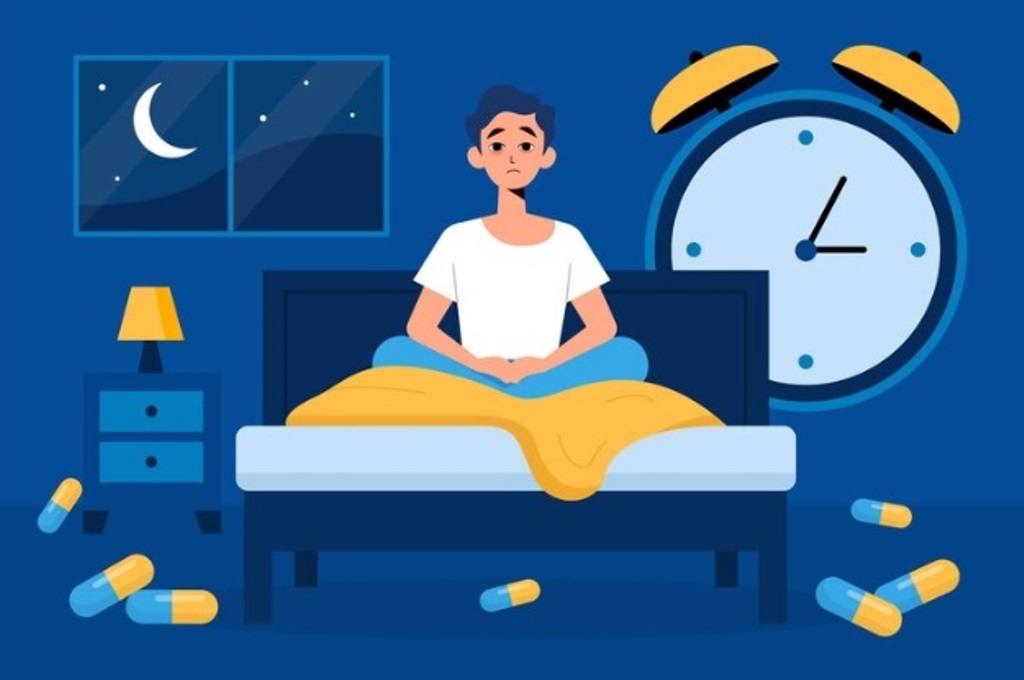The Potential of Medical Cannabis for Insomnia
We all experience occasional restless nights, but when sleep issues persist for weeks or months, it could point to a more serious problem. In the UK, almost 1 in 5 adults are not getting the recommended 7 to 9 hours of sleep per night. Although it’s difficult to pinpoint exactly how many people suffer from insomnia due to varying definitions, the statistics are concerning. Around 22% of the UK adult population report difficulty falling asleep every night, and another 15% experience this problem at least once a week. This means that 37% of the population are affected by sleep-related issues on a regular basis. Only 40% of people claim they never struggle with sleep.

What is Insomnia?
Insomnia can be defined as a condition where it is difficult to fall asleep, stay asleep, or achieve good-quality sleep. The two recognised types are:
-
Short-term Insomnia: Usually triggered by stress, anxiety, or environmental changes and lasting from a few days to several weeks.
-
Chronic Insomnia: Lasting over three months, chronic insomnia is characterised by ongoing sleep difficulties that are not linked to a medical condition.
Traditional pharmaceutical treatments, such as sleep aids, often come with side effects and are only recommended for short-term use (under two weeks). This leaves many insomniacs seeking healthier, long-term solutions.
With the legalisation of medical cannabis in the UK in November 2018, cannabis has become a potential natural alternative for insomnia, especially for long-term management compared to conventional sleeping pills.
Cannabis has been used medicinally for over 5000 years, with early records from China in 2800 BC indicating its use for sleep problems. Let’s take a look at what current research reveals about cannabis and its potential to help with insomnia.
How Cannabis Affects Sleep
The Endocannabinoid System (ECS)
The ECS is a vital system present in humans and all mammals, consisting of receptors (CB1 and CB2), endocannabinoids that interact with these receptors, and enzymes that break them down. This system influences many bodily functions, including sleep, mood, appetite, and homeostasis (the body’s state of balance).
Phytocannabinoids, such as THC (tetrahydrocannabinol) and CBD (cannabidiol), found in cannabis, can interact with the ECS, affecting both the mind and body.
THC and Sleep
THC is the compound responsible for the psychoactive effects of cannabis. It binds strongly to the CB1 receptor, which is believed to contribute to its sedative effects. Research suggests that low doses of THC can help reduce the time it takes to fall asleep and increase sleep duration. However, higher doses may stimulate rather than sedate.
THC’s effectiveness as a sleep aid diminishes over time due to tolerance, and long-term use can reduce REM and slow-wave sleep, potentially affecting mental and physical health. Therefore, THC may be most effective in small doses for short-term use.
CBD and Sleep
CBD has a weaker binding affinity to CB1 and CB2 receptors than THC but offers different benefits. Studies suggest that CBD may help promote sleep by boosting serotonin levels, which in turn increases melatonin, the hormone responsible for sleep. Unlike THC, CBD does not have intoxicating effects, and long-term use does not result in tolerance build-up, making it a better option for ongoing insomnia treatment.
A 2018 study found that CBD was more effective at reducing insomnia symptoms than THC, although both cannabinoids showed beneficial results.
Terpenes and the Entourage Effect
Terpenes, aromatic compounds found in cannabis and other plants, may also play a role in promoting sleep. Myrcene, beta-caryophyllene, linalool, limonene, and terpinolene are terpenes often associated with sedative effects.
The “entourage effect” refers to the theory that cannabinoids and terpenes work together to enhance their overall effectiveness. This has shifted the focus away from the traditional Indica/Sativa classification, with researchers now looking more closely at the terpenes present in each strain.
Choosing the Right Cannabis Product for Insomnia
For insomnia, the best cannabis products tend to contain low doses of THC, higher levels of CBD, and sedative terpenes like myrcene and linalool. If you’re considering medical cannabis for sleep, consult a doctor or licensed health professional to determine the best prescription and dosage for your needs.
At Releaf, we offer online consultations and a Medical Cannabis Card to help patients access medical cannabis in the UK. Our team can provide tailored guidance on using cannabis for insomnia.
Additional Tips for Managing Insomnia
In addition to medical cannabis, several lifestyle changes can promote better sleep. These include:
-
Maintaining a consistent bedtime routine
-
Avoiding daytime naps
-
Limiting screen time before bed
-
Reducing noise and adjusting room temperature
-
Exercising regularly and practising stress-reduction techniques
Cognitive Behavioural Therapy for Insomnia (CBT-I) is another effective treatment option worth exploring if lifestyle changes and self-help measures don’t work.
